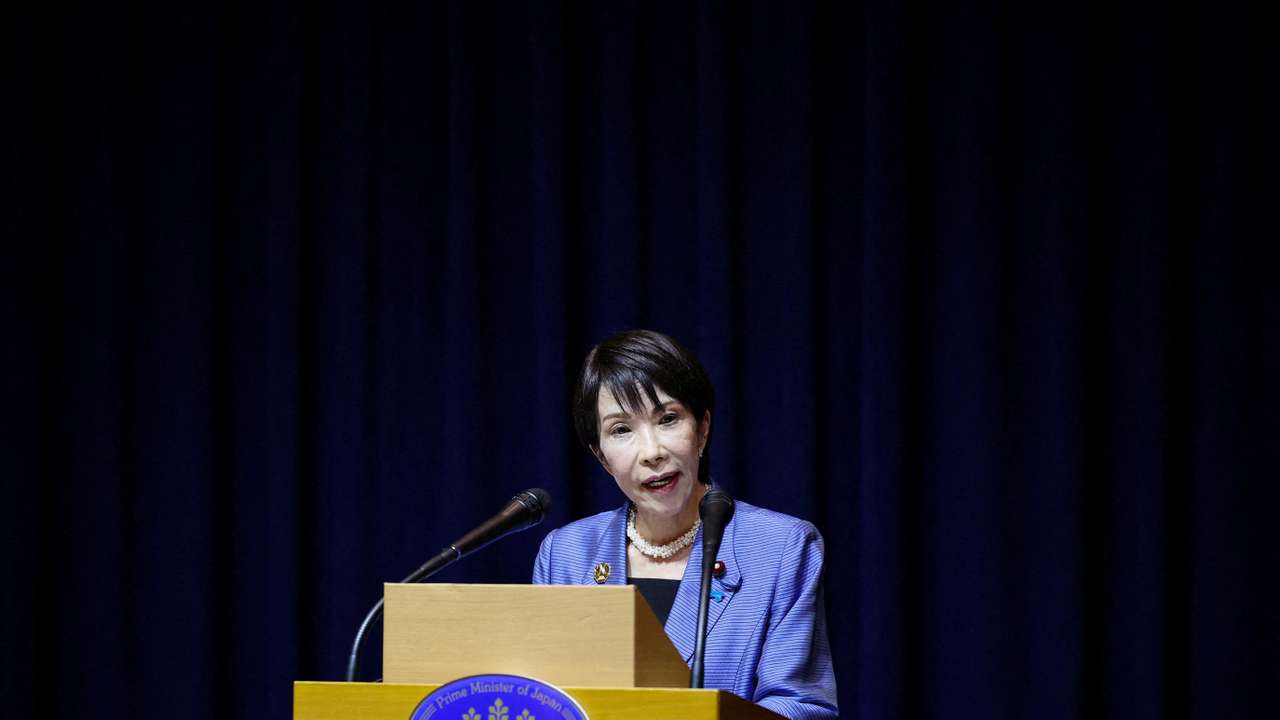Japan, China ties deteriorate after Takaichi's Taiwan comment

Japan's relations with China have plunged to their lowest in years after a dispute triggered by Prime Minister Sanae Takaichi's remarks this month about Taiwan, the democratically-governed island that China claims as its own territory.
Here are key events during the crisis:
November 20 - China postponed three-way meet of culture ministers with Japan and South Korea set for November.
November 19 - China told Japan import procedures for Japanese seafood were insufficient, indicating a blanket ban on such imports within months of partially lifting it. It also suspended talks on resuming beef imports from Japan, the Kyodo news agency said. It threatened further measures unless Japan retracted the comments on Taiwan.
November 18 - No breakthrough resulted from a meeting of Chinese and Japanese diplomats in Beijing, with China again asking for Takaichi to retract her remarks.
Japan said the remarks were in line with its long-standing views, and urged greater safety precautions by its citizens in China.
November 17 - Chinese film distributors suspended domestic screening of at least two Japanese films. China said Premier Li Qiang had no plans to meet Takaichi on the sidelines of the weekend G20 summit in South Africa.
November 16 - China urged its students in Japan or planning to study there to step up risk assessment and plan prudently. A Chinese coast guard ship formation passed through the waters of the Japan-administered Senkaku Islands, a long-time flashpoint for the two countries.
November 15 - Three Chinese airlines offered refunds or free changes on Japan-bound routes. Japan called for "appropriate measures" from China.
November 14 - China warned Japan of a "crushing" military defeat if it uses force to intervene over Taiwan, while cautioning Chinese citizens against visits there. Japan's foreign ministry summoned the Chinese ambassador to protest comments by consul general Xue Jian in Osaka.
November 13 - China demanded that Takaichi retract her remarks on Taiwan, which it called "egregious", warning that otherwise Japan "must bear all consequences" for them.
November 12 - Chinese state media published vitriolic commentaries criticising Takaichi's remarks.
November 11 - Some Japanese politicians called for the expulsion of Chinese consular official Xue Jian in Osaka over his comment.
November 10 - Beijing made solemn representations and strong protests over Takaichi's remarks. Takaichi said they were "hypothetical" and vowed to refrain from similar comments in parliament again.
Japan criticised the Chinese diplomat's "extremely inappropriate" comment, while Beijing defended its envoy's "personal post" as a response to Takaichi's "wrongful and dangerous" remarks on Taiwan.
November 8 - In a comment on social media that was subsequently deleted, China's Consul General Xue Jian in the Japanese city of Osaka said, "The dirty head that sticks itself in must be cut off," in reference to Takaichi's Taiwan remarks.
November 7 - Takaichi told parliament that an attack on Taiwan could be deemed "a situation threatening Japan's survival," a legal term that allows prime ministers to deploy the country's Self-Defense Forces.
November 3 - A Taiwan official rebuffed the Chinese protests, calling a meeting with Takaichi "very normal".
November 1 - China made a strong protest against social media posts by Takaichi about meeting with Taiwan officials during the APEC summit.
October 31 - Chinese President Xi Jinping met Japanese Prime Minister Sanae Takaichi on the sidelines of the Asia-Pacific Economic Cooperation summit in South Korea, where both agreed to pursue constructive and stable ties.
This article was produced by Reuters news agency. It has not been edited by Global South World.